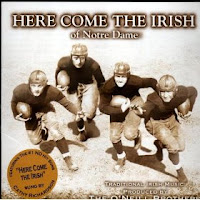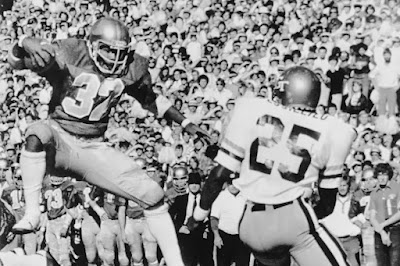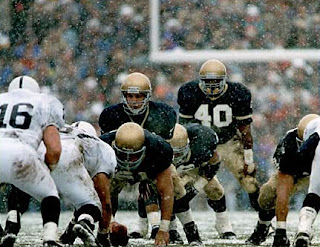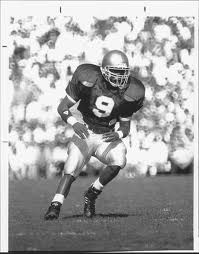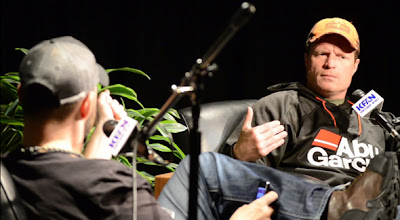For this week’s Flashback Friday, I decided to revisit a game that holds extra meaning for me—Notre Dame vs. Miami in 1971. Why this one? Because 1971 also happens to be the year I was born. There’s something fun about looking back at what the Irish were doing on the field the same year my own story was just getting started. This matchup in the Orange Bowl had all the drama of a made-for-TV special: a sudden injury, an unexpected hero, and a season that shifted in the blink of an eye.
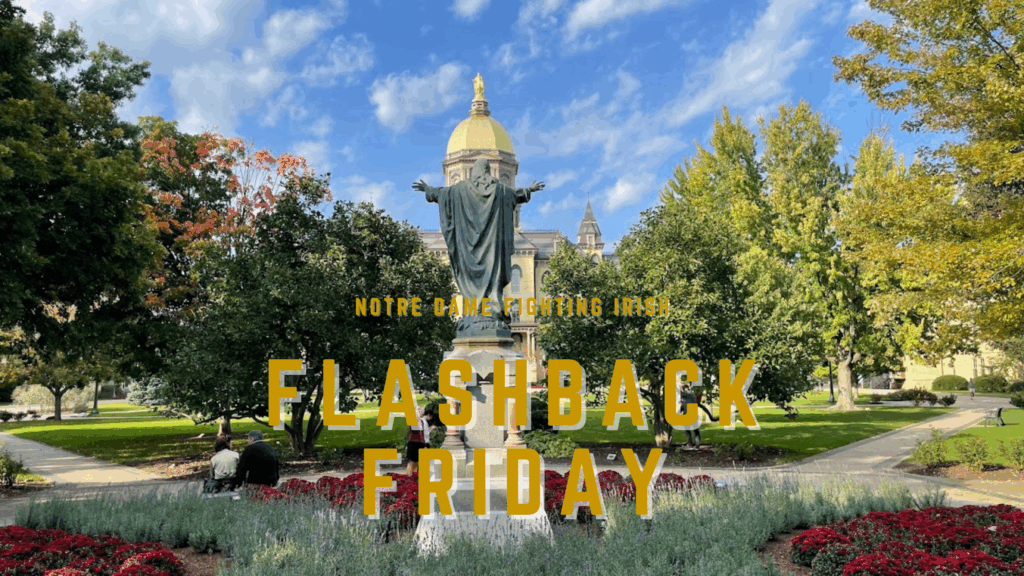
The following excerpt is from the December 10th, 1971 issue of the Scholastic Football Review (vol 113, no. 8).
About sixty-five thousand showed up for this game at Miami’s Orange Bowl. But just about everyone from Notre Dame caught this one on the tube. It was a peculiar game to watch on television — it had to be one of the shortest (in duration of time) games ever played (an hour and 55 minutes to be exact). And when you’re watching a quick game like that on television it appears to be even shorter. It was kind of like watching one of those movies pre-made for television. In fact, it had the markings of a live TV drama: the hero gets injured and his faithful understudy takes over and saves the day. A simple plot. A simple game.
For a while it looked like the Hurricanes would be in this game all the way. Their quickness surprised the Irish both on offense and defense. Twice it appeared they were headed for long scoring drives in the first quarter until the Irish defense stiffened and shut them off on key third and short-yardage situations.
The Hurricanes’ defense badgered Notre Dame in a somewhat similar manner to the way Georgia Tech stopped the Irish attack last year. The Irish moved the ball, but couldn’t seem to be able to break through Miami for the score.
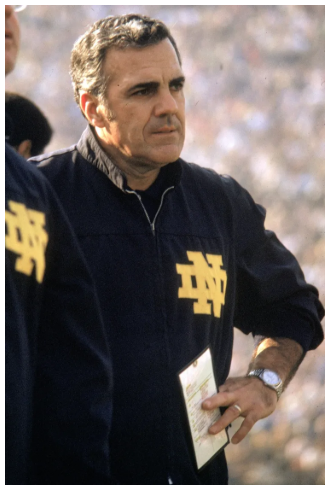
With 13:42 left in the second quarter, a single play changed the course of Irish football for the ’71 season. On second and nine from his own 37, Irish quarterback Bill Etter dumped a screen pass to Tom Gatewood. The play lost two yards, but the Irish lost more than that. Etter somehow injured his knee on the play and would be lost to the team for the season.
Enter Cliff Brown. On his first play he dropped back to pass, slipped on the Orange Bowl’s “polyturf” rug, and lost seven yards. The next time the Irish got the ball Brown slipped and fell on an attempted handoff for a 2-yard loss. Brown was making an inauspicious debut; or so it seemed. But a quick change of shoes saved the day for the Irish. Brown slipped no more and he directed Notre Dame to its fourth straight win in ’71, 17-0. A four-star performance by a novice actor, to say the least.
After Brown changed his shoes to a pair more suitable for traction on the “polyturf,” he brought the Irish down to the Miami 22 where Bob Thomas kicked a 38-yard field goal to give the Irish a 3-0 halftime edge.
Cliff Brown apparently wasn’t hampered by the jitters in his first long-range debut as quarterback. No sooner had the Irish received the second-half kickoff than Brown and the offense went to work on Miami’s tired defensive line. From the Irish 34 Notre Dame ran inside and around the befuddled Miami defense in eleven plays with Andy Huff capping the drive on a one-man-show run for 16 yards and the score. In the middle of the fourth quarter the Irish scored again, as Brown highlighted a 68-yard scoring drive with a 33-yard keeper through the middle of the Hurricane defense. Six running plays later Irish halfback Darryl Dewan swept for 6 yards around left end for the game’s final tally.
For the fourth straight week the Irish defense had turned in a stellar performance. They Umited the Hurricanes to a mere 60 yards rushing and 7 first downs. Around campus, people were beginning to feel that the ’71 unit would better the ’66 team’s outstanding defense. Some even felt that few teams would score against the Irish for the rest of the year. “The best offense is a good defense” was the watchword.
The offense was beginning to show signs of coming along. The running game was working well, but the passing attack had a few kinks in it. One thing was certain, though; the great “quarterback question” had seemingly been answered for good. Cliff Brown was the man, and the fate of the Irish would be riding on his successes for the remainder of the year. But no one really cared. After all, no one was going to score against us anymore, so why worry about the lack of a balanced attack? Only time would tell. . . .
Looking back, the 1971 Miami game wasn’t just another win for Notre Dame—it was a turning point. A young quarterback named Cliff Brown stepped in under the brightest of lights and gave Irish fans a glimpse of resilience, grit, and leadership that would carry the team forward. For me, it’s a reminder that even in the most unpredictable moments, new beginnings can unfold. Fitting, I think, for the year I began my own journey.
Cheers & GO IRISH!

